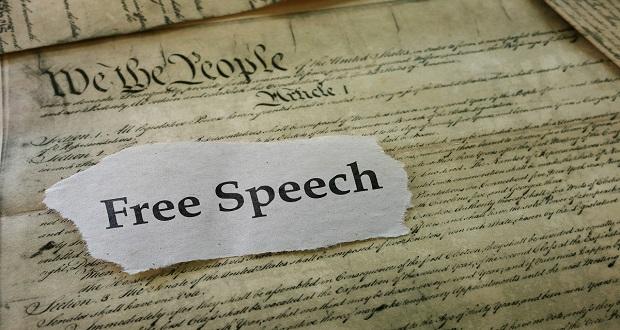
Last year, Google fired an employee who circulated a memo criticizing the company’s diversity initiatives. In the memo, the employee argued that biological differences between men and women are responsible for the gender gap in the technology field and in the company as well. While he claimed he had the legal right to express his opinion on the matter, the company’s CEO felt differently.
In a response sent to all employees, the CEO affirmed that “while we strongly support the right of Googlers to express themselves … to suggest a group of our colleagues have traits that make them less biologically suited to that work is offensive and not OK.” He reiterated that the employee’s view stood in violation of Google’s code of conduct, which requires “each Googler to do their utmost to create a workplace culture that is free of harassment, intimidation, bias and unlawful discrimination.”
Did the employee have the right to express his opinion? Is political correctness serving to suppress free speech? How can we distinguish between controversial ideas and malicious bigotry, and what is the best way to address those issues?
First, we need a better understanding of the term “political correctness.”
Merriam-Webster defines political correctness as “conforming to a belief that language and practices which could offend political sensibilities (as in matters of sex or race) should be eliminated.” Similarly, Encyclopedia Britannica defines the term as “language that seems intended to give the least amount of offense, especially when describing groups identified by external markers such as race, gender, culture, or sexual orientation.” In our increasingly diverse and multicultural society, this term should signal the starting point for a civil dialogue. However, political correctness is often equated with “liberal oversensitivity” or, even worse, as a weapon against opposing ideas.
In recent history, the term “political correctness” gained prominence in philosopher Allan Bloom’s 1987 book The Closing of the American Mind. In the book, Bloom was critical of universities for sacrificing open debate and discussion in an attempt not to offend certain groups. Higher education’s apparent intolerance for controversial ideas seemed evident when Syracuse University disinvited a speaker for fear of the outrage it might spark. A class at Reed College, designed to engage students in critical inquiry, became dysfunctional because students felt the content was “Eurocentric,” “Caucasoid,” and “oppressive.” At the University of Michigan, protestors interrupted controversial social scientist Charles Murray because they found his theory on the correlation between race and I.Q., a theory which has been debunked widely over the years, downright repugnant.
What does the Constitution say about free speech?
As U.S. Americans, our belief is that we have a fundamental right to free speech. In fact, we erroneously believe that the First Amendment to the U.S. Constitution entitles us to express our views whenever and wherever we want. This is a wrong and dangerous assumption. The First Amendment outlines in plain English the only free speech we are guaranteed in this country:
Congress shall make no law respecting an establishment of religion, or prohibiting the free exercise thereof; or abridging the freedom of speech, or of the press; or the right of the people peaceably to assemble, and to petition the Government for a redress of grievances.
In other words, the First Amendment to the U.S. Constitution is a part of the United States Bill of Rights that protects freedom of speech, freedom of religion, freedom of assembly, freedom of the press, and right to petition. However, this protection extends only to the public sector or government employees. With few exceptions, private employers are not required to let free speech reign throughout the workplace.
In our current political climate, there seems to be increasing evidence that individuals feel it is their right to speak freely in the workplace. Proponents of this trend argue that they are simply exercising their right to free expression and to speak honestly without filters.
While this argument may work well in the throes of the public sector, it doesn’t apply to the private workplace, at least, not without serious consequences to the employee. As mentioned above, the First Amendment prevents the government, but not companies or individuals, from limiting free speech. So, when you work for the private sector and your employer is not the government, the Constitution gives you zero protection in terms of keeping your job based on, or despite, what you say
In other words, there is no legal barrier to a private employer firing an employee because of their speech at the workplace. While you may hold on to the idea that you can say whatever you want, rest assured that your employer will also have something to say about it. So, if you’re being hired by a private company and you are handed the employee handbook, pay very close attention to the company’s code of conduct. The Google case illustrated above proves this point.
The way I see it, there are the two sides to this argument. On one side, you find those who are critical of political correctness (“PC”) and fierce defenders of free speech. These are often the individuals who feel they are under attack for not being “PC” just because they have the courage to speak their minds. On the other stand those who believe that words need to be used carefully because of the power they carry. Language has, after all, been used as a weapon of oppression. For organizations hoping to attract and retain the most talented people, allowing individuals to speak without filters can, no doubt, create a toxic environment that can cause tremendous damage to individuals and the organization as a whole.
Shutting down the open exploration of sensitive subjects, though, is not a viable or realistic solution. If that were the case, I imagine we would have zero books or open discussions on topics such as religion, politics, sexuality, or race – to mention just a few “sensitive” topics. In the paper “Addressing Race and Racism in the Workplace”, I argue that companies today spend an impressive amount of resources focusing on diversity trainings and highlighting the company’s zero tolerance for discrimination. But, the need for trained facilitators remains unaddressed in the company’s training curricula. Neither is the need for the creation of safe spaces in the organization, so individuals can have courageous conversations regarding the systemic advantages and disadvantages that are still in place in our society and in the organization.
Shutting down the open exploration of sensitive subjects, though, is not a viable or realistic solution. #freedomofspeech #politicalcorrectness Click To TweetHow candid are the conversations in your workplace? Do employees feel they can speak freely and honestly with each other, or do they fear real or imagined negative consequences, such as being labeled a troublemaker or losing their jobs? Imagine the chilling effect these practices have on candid conversations as well as in the culture of the organization. If you are interested in increasing your organization’s capacity to engage in Bold, Inclusive Conversations®, you may want to contact The Winters Group for support.
Do employees feel they can speak freely and honestly with each other, or do they fear real or imagined negative consequences, such as being labeled a troublemaker or losing their jobs? Imagine the chilling effect these practices… Click To TweetNext week, we will share more on the difference between censoring and educating as well as the best practices for being a responsible employer in this polarized environment. Until then, continue reflecting on this argument, where you stand, and where there might be opportunity to engage in finding common ground.


















Dear Ms. Luiza Dreasher,
I read your POV, “Does Political Correctness Infringe on Free Speech?” with great interest today because I am in the midst of an argument with family regarding when is it legitimate to stop a conversation because of discomfort with the subject matter. This is not a workplace issue but rather a personal question. How do you determine what is ‘offensive’? Who gets to decide? How inclusive should the ban on speech be? My guess is that in the context of family you will counsel me that among family members there are no clear rules. Are there no doctrines that discuss human discourse in the private setting? Is this basically a Miss Manners question? I’m asking with all due sincerity because I believe that legitimate and healthy discourse is too often censored with, “We don’t discuss politics” which is so broad a censorship it really does infringe on freedom of expression. I’m interested in your thoughts. In my opinion, your view point, “Shutting down the open exploration of sensitive subjects, though, is not a viable or realistic solution.” applies here too.
Thank you for reading and I wish you a very happy holiday season. – Debra